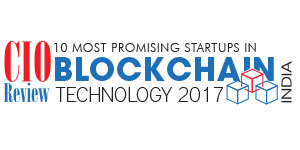 The World Bank launched a blockchain lab in an attempt to pilot projects that can improve governance and social outcomes in the developing world. The Central Bank of Nigeria, in a recent event, addressed the first conference on blockchain technology. Similar interests have been displayed by banks and governments of various developing nations along with UN and other global players that are at the forefront of technology with continuous investment and research dedicated to blockchain. Alex Fork believes trends such as these are likely to thrust the blockchain market into the mainstream.
The World Bank launched a blockchain lab in an attempt to pilot projects that can improve governance and social outcomes in the developing world. The Central Bank of Nigeria, in a recent event, addressed the first conference on blockchain technology. Similar interests have been displayed by banks and governments of various developing nations along with UN and other global players that are at the forefront of technology with continuous investment and research dedicated to blockchain. Alex Fork believes trends such as these are likely to thrust the blockchain market into the mainstream. Alex Fork is the founder of Luxembourg headquartered Humaniq, a provider of new age financial services that aims to accelerate access to banking for the underserved individuals around the globe by harnessing the power of blockchain technology. These financial services are facilitated with the firm’s financial inclusion solution, the Humaniq app. Now, all that one requires to open the door to a world of financial opportunities is a cheap smartphone with a front-facing camera and the Humaniq App which verifies one's identity, immediately after which, one can start transacting and storing value.
Providing an insight into the backdrop of the app, Alex Fork delineates “Despite many efforts, 2.5 billion people still lack a transacting account and an additional 1 billion people, are under-banked. With the blockchain, we can overcome the current cost-barriers faced by banks in expanding their services.” The founder further speaks to us on the functionality of the app. The Humaniq app has been designed to do much more than providing a transacting account. The app will deliver a platform that provisions the full range of financial and other essential services.
The technology behind the app, Ethereum Blockchain significantly cuts down the operational costs in emerging economies by decentralising and cutting out the expensive middleman currently needed to process and verify transactions. The app’s biometric technology enables users to access Humaniq using their biometric identification and over time, build an online transaction history. The Bio-identification process involves taking two photographs of the user that must match. The second photograph requires the user to show a particular but randomly selected emotion, to prevent the misuse of matching photographs of users to access their account. Additional security measures are also in place to validate the user’s phone and phone number.
Humaniq is one among the firsts to leverage blockchain to provide financial services to the unbanked individuals. Within nine months, the firm has already achieved a successful ICO and alongside launched the Humaniq token and the Humaniq App pilots in Ghana and Nigeria. In addition, with the launch of Humaniq Accelerator, the firm is also in the process of collaborating with startups to provide credit, insurance, food and other vital services to a huge unserved market.
A key role is played by the Humaniq Ambassadors in enabling the firm to reach out to communities that the app targets. These ambassadors are prominent Bitcoin users embedded in the communities of the prospective users who as locals, know how to engage and influence the smartphone-using, unbanked populations in their own countries. Moreover, with regular updates on the Humaniq blog, the team answers various questions concerning the functionality of the app and how to use the HMQ token, the Humaniq coin.
Humaniq aims to accelerate access to banking for the underserved individuals around the globe by harnessing the power of blockchain technology
Humaniq is one among the firsts to leverage blockchain to provide financial services to the unbanked individuals. Within nine months, the firm has already achieved a successful ICO and alongside launched the Humaniq token and the Humaniq App pilots in Ghana and Nigeria. In addition, with the launch of Humaniq Accelerator, the firm is also in the process of collaborating with startups to provide credit, insurance, food and other vital services to a huge unserved market.






